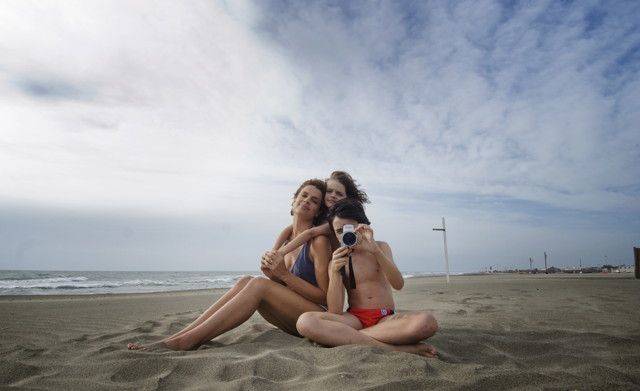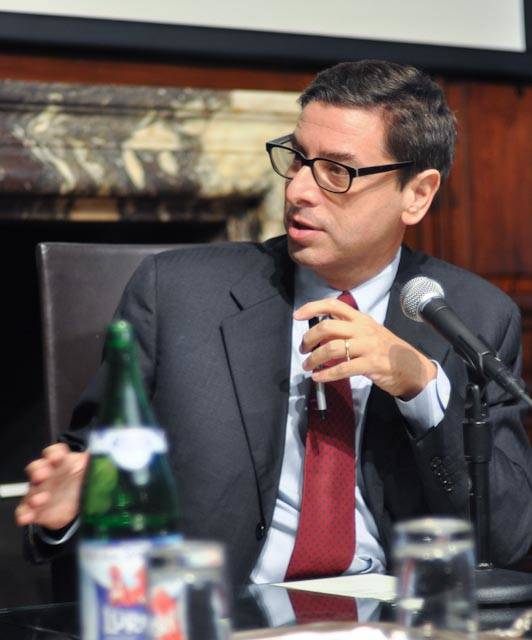Diversity, Art, and Beauty. Italian Cinema is Back! Interview with Antonio Monda
Organized by the Film Society of Lincoln Center together with Istituto Luce-Cinecittà- Filmitalia, in collaboration with the Italian Cultural Institute of New York, professor and journalist Antonio Monda, the Alexander Bodini Foundation and Casa Italiana Zerilli-Marimò, “Open Roads: New Italian Cinema” celebrates its thirteenth year (June 5-12) with an exceptionally strong and diverse line-up.
Considered the leading showcase of contemporary Italian cinema in North America, Open Roads (named after Rossellini’s famous film Rome: Open City) was co-founded by Antonio Monda, Richard Peña – then the Film Society’s Director – and Giorgio Rosetti, former manager of Italia Cinema, which later became Film Italia. Since the festival’s inception, Monda has handled the artistic side of things, choosing which films to bring to American audiences eager to see diversity, art, beauty and, simply put, a sampling of the most significant Italian films of the past year.
How would you describe this 2014 edition of Open Roads?
“One word: diversity. This ediion includes the latest work from established veterans such as Gianni Amelio (who is represented by two films) Roberto Andò and Daniele Luchetti, top award winners, and promising new talents from both the commercial and independent spheres.”
One clear novelty of this season is the abundance of documentaries.
“In past years it seemed there was no room for them in Italian cinema. The art of documentary filmmaking seemed to have disappeared. Yet we are glad to say that many filmmakers have used it to tell their stories. And they tell them successfully.”
This is proven by the fact that two documentaries presented have already won top prizes. Gianfranco Rosi’s Sacro GRA was the first documentary to win the Golden Lion for Best Film at the Venice Film Festival.
“The film focuses on the lives that surrounds GRA (Grande Raccordo Anulare) Rome’s 43.5-mile highway encircling the whole city. Inspired in part by Italo Calvino’s novel Invisible Cities, the film offers moving portraits of areas drivers pass through but never see, revealing a different side of the bustling city dwellers and a paradoxical reality.”
Then we have Alberto Fasulo’s debut docudrama Tir which won the top prize at
the Rome Film Festival...
“Fasulo is very inventive. The film follows a former teacher from Bosnia who takes a job driving a tractor trailer (‘tir’) through Europe. Using professional actors and real truck drivers, Fasulo has created a striking film about what life is really like on the road – including the sounds, the landscape, and the longing for company. This film is not a pure documentary but a hybrid of reality and fiction.”
Other beautiful and thought-provoking documentaries include Vincenzo Marra’s Naples-centric The Administrator and Gianni Amelio’s Happy to Be Different. Both tackle sensitive social issues. Italy’s often dysfunctional society is the focus of many of your films.
“Indeed. Marra, for instance, examines a superintendent’s dealings with his larger-than-life tenants, painting a tough-minded yet affectionate portrait of crisis-addled Italy. And Amelio offers a moving, enlightening work of oral history about gay life in Italy from the fall of Fascism through the early 1980s.
And several films in this year’s lineup explore the evolution of Italy’s political system, including Daniele Luchetti’s opening-night selection Those Happy Years.
“As in the past, one of our aims is to showcase a variety of films, ranging from sober dramas to irreverent comedies. Many portray Italy as a disenchanted and melancholic country, given its current difficulties. But different directors do this in different ways.”
Two examples?
“On the one hand, Gianni Amelio ’s A Lonely Hero, starring comedian Antonio Albanese. It tells the story of a man forced to reinvent himself in his pursuit of a job (as a train conductor, a fishmonger, a tailor, etc.), as a result of the country’s unstable unemployment crisis. On the other hand the scathing critique of Italian political dynamics in Roberto Andò’s Long Live Freedom staring Toni Servillo as a seasoned politician navigating the decline of his party by fleeing to Paris and hiding out at the home of his ex-girlfriend.”
Talking of Toni Servillo, he is a great actor whom Americans have gotten to know after Sorrentino’s The Great Beauty took home the Academy Award for Best Foreign Language Film. Has that victory affected the way Italian cinema is perceived in the US?
“Well, it was an extraordinary victory and it has helped, but ‘one swallow does not a summer make.’ Just because one good thing has happened, you cannot be certain that more good things will happen and the whole situation will improve. You must work hard at it. There is more curiosity and interest in Italian cinema, sure, but it needs to continue to reinvent itself.”



































i-Italy
Facebook
Google+
This work may not be reproduced, in whole or in part, without prior written permission.
Questo lavoro non può essere riprodotto, in tutto o in parte, senza permesso scritto.